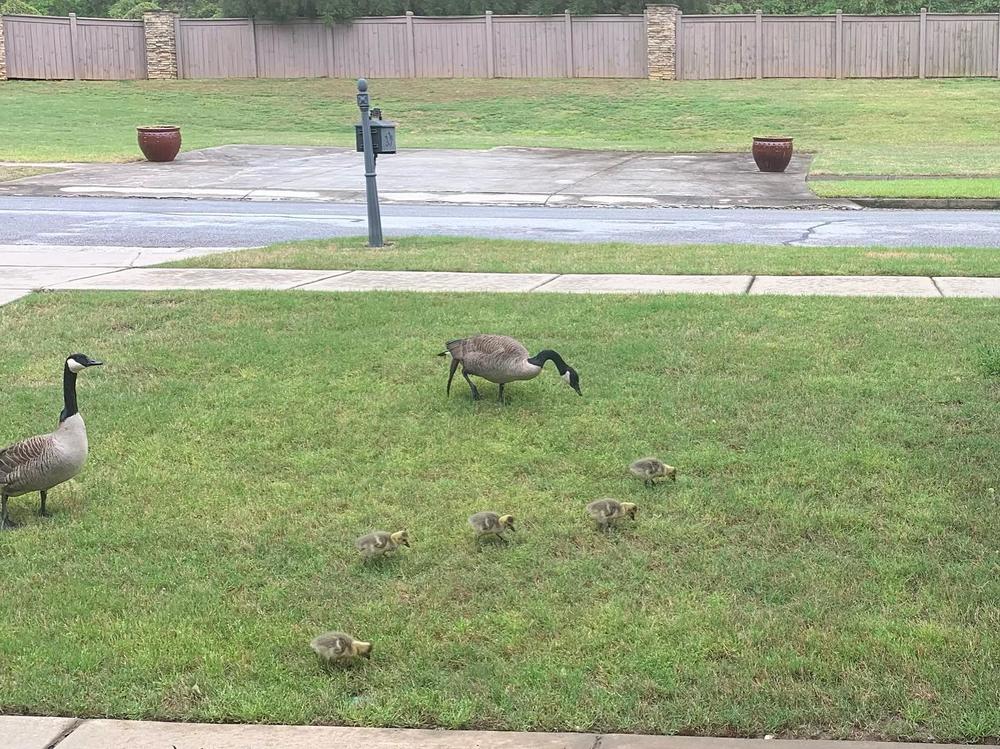
Caption
Every summer, Canada geese in Georgia lose and then regrow their flight feathers in a process called molting. This leaves them flightless for about a month.
Credit: Patricia Duboise / Georgia Department of Natural Resources

Every summer, Canada geese in Georgia lose and then regrow their flight feathers in a process called molting. This leaves them flightless for about a month.
Every summer, the Georgia Department of Natural Resources sees an increase of nuisance calls about geese.
That’s partly because in June, Canada geese in Georgia shed and regrow their flight feathers in a process called molting.
“This time of year, geese just kind of hang around because they can't go anywhere," said Kaitlin Goode, the Urban Wildlife Manager for the state Department of Natural Resources. "Even if they're hazed or harassed, there's really no place for them to fly off to because they can't fly. So they're just kind of stuck wherever they end up molting.”
To deter geese from your property, Goode suggests scaring them away or putting up barriers. She also said if you know there's a nest nearby, try to avoid that area.
But mostly, it’s important to not feed the geese, she said.
“Once we start handing out food to wildlife, they lose that fear of people and they're more likely to end up either hit by a vehicle or killed for conflict reasons,” she said.
She says the molting period is mostly finished around July 1 and the geese should again be flightworthy that month.
In a press release, the Georgia Department of Natural Resources said, "It is important to remember that Canada geese are a protected species under state and federal law. It is illegal to hunt, kill, sell, purchase or possess Canada geese except according to Georgia's migratory bird regulations."